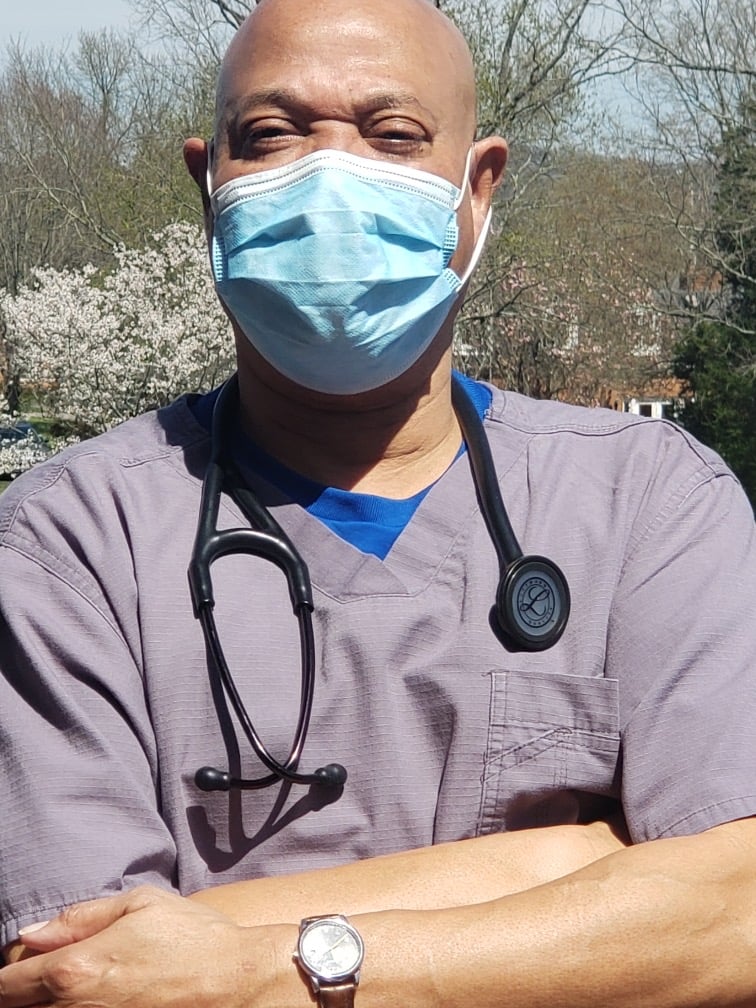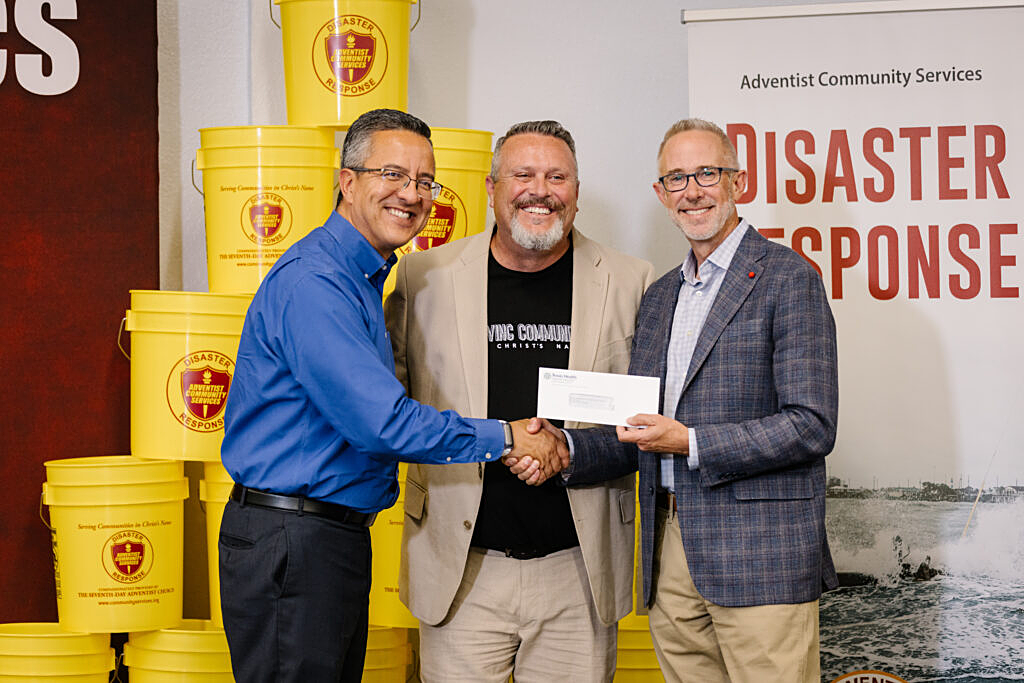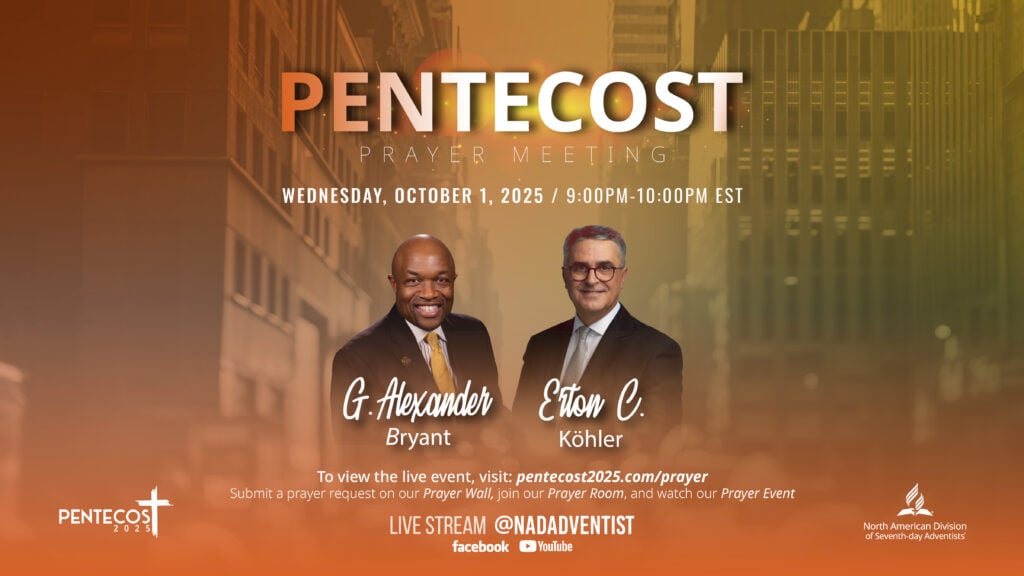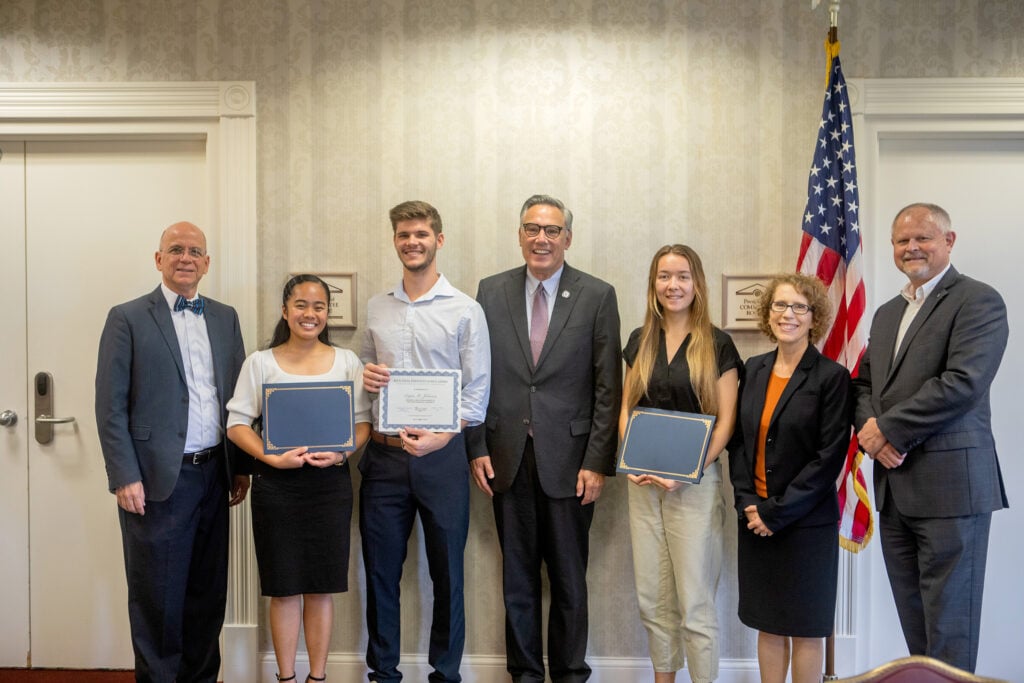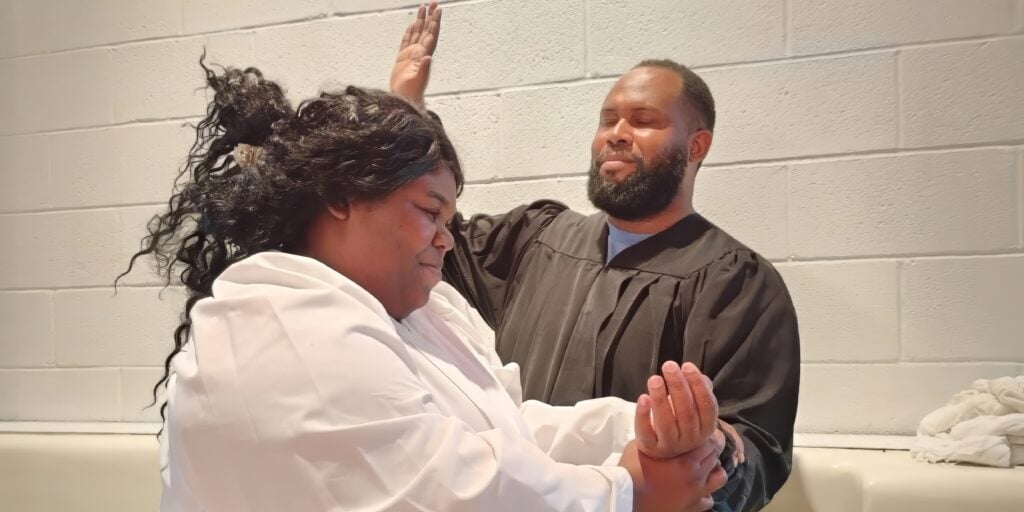The coronavirus pandemic has created a harsh reality for health care professionals. The effects of the disease on medical providers continuing to work during these times are demanding and ever-changing. Emergency departments across the United States are seeing an influx of patients with symptoms associated with the virus, creating compounded high-stress situations for health care providers. Meanwhile, there are still patients with other conditions, illnesses, and injuries who also need medical attention.
Aside from hospitals, many health care services have either reduced their hours, closed, or transitioned to telehealth practices due to a decrease in patient visits.
Mylon Medley, assistant director of the North American Division communication department, spoke to Wayne Moore, an emergency medicine physician based in the metropolitan area of Nashville, Tennessee. He discussed his decades of experience in the field, including a recent rotation in a hospital that was saturated with COVID-19 cases.
Mylon Medley: What type of presence does your clinic have in its community?
Moore: The clinic is called Moore Life – Urgent Care: Gallatin. The city of Gallatin is a suburb of Nashville, located in Sumner County. We’ve been recognized as the best urgent care for the county every year for the past four years. We just celebrated the clinic’s fourth birthday last month. We now offer telehealth visits for our patients as well.
What’s your professional background?
Prior to starting my clinic, I was chief of emergency medicine for Nashville General Hospital for 15 chief years, however, I worked there for a total of 20 years. I still do rotations at Nashville General.
Before living in Nashville, I was the assistant chief and medical director for the Washington, D.C. Fire and EMS Department where I received specialized training in countering bioterrorism.
My family and I moved to Tennessee in 2003 when I became the state’s medical director for bioterrorism. In 2005, we put together a system called the Hospital Resources Tracking System. It allowed hospitals to be able to track supplies of other hospital networks throughout the state in the event there was an unexpected shortage of resources in a particular area. It was the first time such a program had been implemented in the state. The system was created in response to a federal grant that was available at the time to assist states in preparing for medical emergencies. We gleaned from models used in Mississippi and North Carolina. Emergency medical officials from both states said, “If you borrow you have to share it for free.” And that’s what we did.
Let’s talk about your urgent care clinic. Have you seen a surge of patients? What was it like “before” coronavirus?
We own the entire building that our clinic is located in. We are starting to expand to include a primary care clinic. Orthopedic and physical therapy practices are moving in. We were seeing record number of patients. Our census volume was shooting out the roof.
When news of COVID-19 took off, which was around the time of our clinic’s birthday, our census suddenly tanked. Hardly anyone came because of the heightened awareness of social distancing. I also think people were just afraid to go out.
About three weeks ago, people began venturing out and getting tested. The number of patients began to mushroom. We started seeing high amounts of COVID-19 positive patients.
Patients who may go to the hospital because they have symptoms are often turned away if they don’t need to go on a ventilator. Those are the patients – and others who are sick for reasons aside from the coronavirus – we’re staying open for, especially because many primary care practices have closed or reduced their hours. We want to be a beacon of hope for our community.
What type of symptoms are you seeing with those patients?
More and more people want to be tested. You don’t need to have a combination of symptoms to qualify for a test, such as fever, chills, shortness of breath, and cough. You can have just one of those symptoms.
We are liberally utilizing chest x-rays, as a front-line tool to evaluate people with shortness of breath. We’re seeing patients with pneumonia without the typical symptoms of pneumonia as a result of COVID-19. We can’t hear it with a stethoscope. It’s a stealthy pneumonia. We can only detect those cases of pneumonia with x-rays, so we’re aggressively checking for it.
Symptoms of sinusitis or bronchitis are usually associated with virus. Same with the loss of taste and smell.
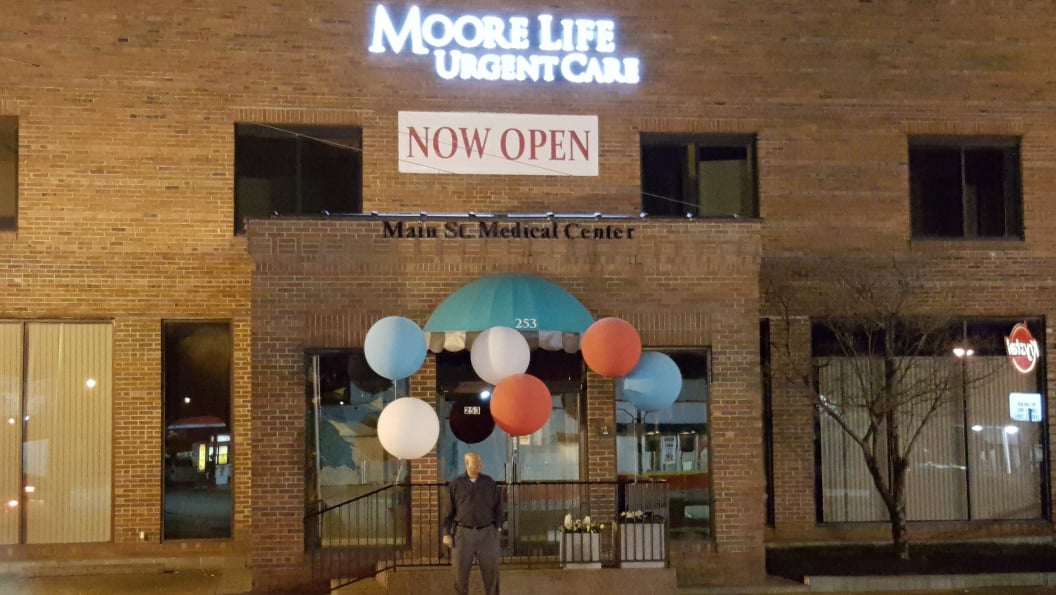
Can you tell me about your telehealth operation and how you’re able to sustain operating a clinic that is both physical and virtual?
We are seeing an increase in our telehealth business. I have five health care providers at the clinic. Three of them are able to operate the telehealth system. I serve as a backup.
A lot of patients are fearful of coming into an environment where they may be exposed to the virus. Some telehealth patients are converted to regular visit because they may need injections or other evaluations. They don’t get charged for two visits, only one visit if they come in.
For those that need to come to the clinic, they have the option to stay in their cars, where we can give allergy injections, conduct evaluations, or perform other treatments.
Has anything stood out to you with the telehealth visits? Something you hadn’t quite expected?
We’re seeing a lot of emotional issues. People are scared and frightened. Some have even cried. We’ve been able to comfort them.
Are you able to refer those patients to a psychologist?
There are 10 medical professionals in my family. We’re working to build a tele-health network to utilize all our expertise. One of my relatives is a psychiatrist. We also have two dermatologists, one radiologist, and an executive medical director of AdventHealth Hospice Care. We’re hoping to have the network setup in a couple weeks. We’ll be able to refer patients that way.
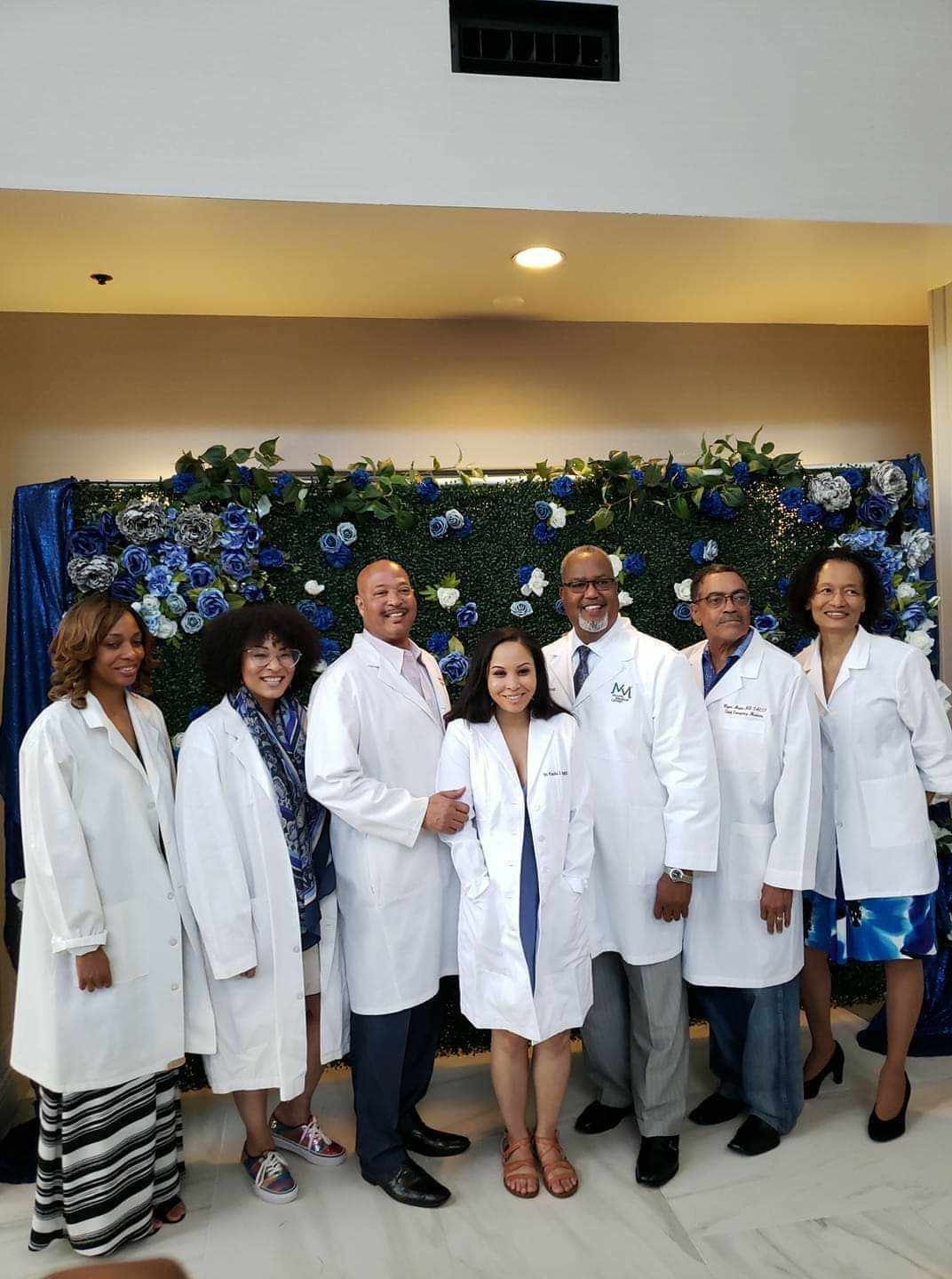
How are you doing with supplies?
Initially, we were in a terrible place with N95 masks. We were scrambling. Fortunately, one of the members of the church I attend is the manager of a paint store. He was able to reserve masks and protective suits for us.
More masks are available now through our suppliers; we’re in a much better place. We also have Adventist friends with connections who are able to give us supplies. And more masks are now available through Amazon.
What are you encountering as you carry out your rotation in between local hospitals?
I rotated between local hospitals before the pandemic. I’ve done it to help subsidize the cost of operating the clinic. We were close to minimizing the need for me to pick up shifts at the hospitals until COVID-19 came, which has caused financial strain. However, our leadership team has implemented marketing and operational strategies to ensure the continued delivery of critical medical services to the community without cutting our staff.
Last Thursday while working at a local hospital emergency department, I had one of the worst days I’ve ever experienced in my career. I was afraid for my life and almost wanted to leave emergency medicine.
That’s saying a lot since you have worked in emergency medicine for so many years. Please describe what happened.
I think it was a combination of fearing for my safety and the stress of seeing a lot of patients back-to-back. It really impacted me significantly. It was the first time I worked at that particular hospital in four months. I had to bring some of my own PPE.* The hospital is located in a densely populated suburb of Nashville. That particular day, it was very busy with COVID-19 patients coming in.
There are a lot of things you have to be constantly mindful of at a rapid pace. Going from room-to-room and changing PPE in between is physically tiring and stressful. In the middle of it all you start to wonder, “Am I rushing? Did I forget to put things on completely?”
I remember thinking to myself, “You’re getting too old for this.”
I admitted a lot to patients to the ICU that day. No one passed away. I am not aware of their current status at this time.
What does your family think of all the time you’re spending on the literal front lines of the virus in hospital emergency departments?
I’ve survived thanks to the prayers and support of my family and friends.
My wife is very fearful. She makes sure I change out of my clothes, and then immediately take a shower before I get settled in the house.
Our concerns also extend to our youngest daughter who is also a physician. Some of her attendings were infected in the hospital where she works. She was placed on quarantine as a result, but thankfully she did not contract the virus.
My oldest daughter, who is also a physician preparing for her residency in psychiatry, works in the clinic. We’re all on the front lines. We want to help people. Our desire to help our fellow brothers and sisters outweighs our fears.
Would you say a different side of your faith has been activated?
This has hit me personally.
In one day, I found out someone who attended Oakwood University around the same time as me and had become a mentor when I worked in Washington, D.C. had died from COVID-19. A few hours later I attended a social distancing funeral via video conferencing. Then that afternoon I participated in an online panel discussion about COVID-19 with a minister who recovered from the virus and other Adventist doctors.
All of those things hit me one day. That shook me up. That was when I was truly awakened.
Later that evening, I attended a weekly Friday night Bible study. We’ve been studying the book of revelation and what will happen in the last days before Jesus’ return.
I’m a PK (pastor’s kid). My dad loved holding “Revelation Seminars” all around the country. I did not understand Revelation when I was younger and did not try to. But now I see it has relevance to present day.
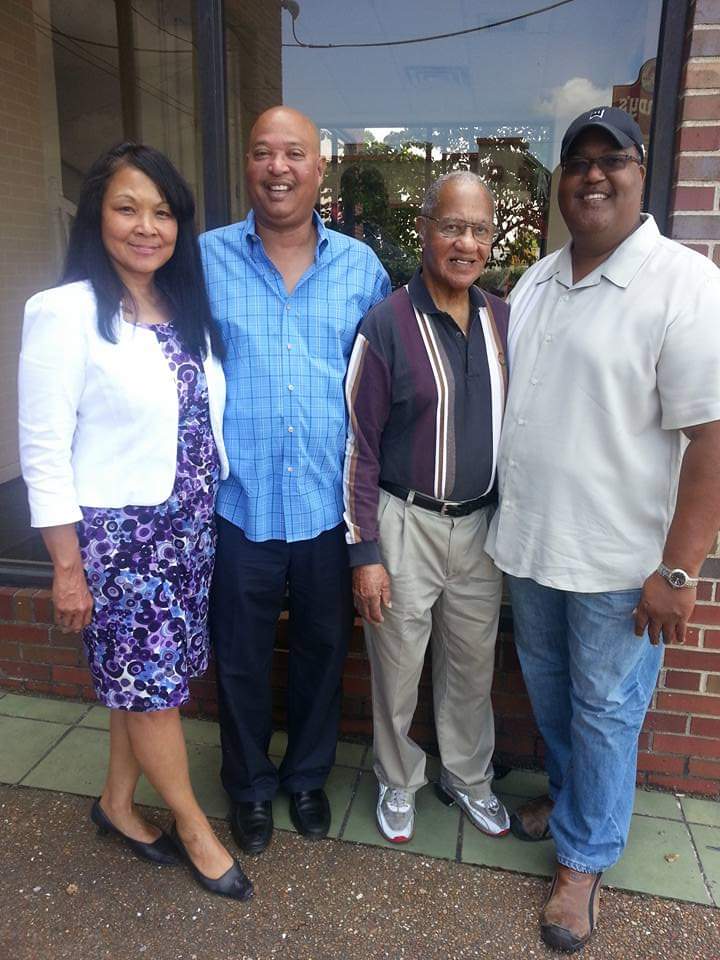
You mentioned the network you and your relatives are working to launch. What sparked the legacy of medical service for your family?
It started with my dad, Earl Moore. He was a minister and a big believer in public health. For us, integrating spirituality with the health message started with him.
He majored in theology at Oakwood and minored in nursing. While I was in high school, he got a master’s degree in public health from Loma Linda University. He was really involved in civil rights and social justice issues in communities of color. He was proactive with disaster response medicine in the 1960s. He’d take a medical van to areas in the south that were affected by tornados and hurricanes.
One of my dad’s most notable efforts was providing medical assistance to the participants of the Poor People’s March that was conceived by Martin Luther King, Jr. in 1968. He rode his van alongside the marchers and offered care as needed. The van accompanied the group from Tennessee all the way to Washington, D.C.
He passed away two years ago at age 93.
What keeps you going?
This is the time for health care heroes to step up to the plate. But most importantly, what keeps me going is having faith that God is going to protect me while trying to do the right thing by helping others. I must have faith to keep on doing what God has led me to do.
—
To learn more about the Moore Life Clinic including its telehealth services, visit: https://moorelifeurgentcare.com/
*Personal protective equipment
